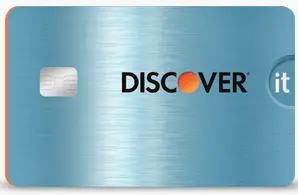Debt consolidation rolls multiple debts into one single payment. It can be a smart idea if you qualify for a low enough interest rate.
That's why most people consider debt consolidation to help their financial situation. If you are wondering if debt consolidation is a good idea — this article is for you.
What is debt consolidation?
Debt consolidation is a financial strategy that involves taking out a new loan to pay off multiple debts.
The primary purpose is to simplify the debt repayment process by combining several debts into a single, larger piece of debt, usually with more favorable payoff terms.
Favorable terms might include a lower interest rate, lower monthly payment, or both.
People typically use debt consolidation as a tool to deal with high amounts of credit card debt, student loans, or other personal debts.
How does debt consolidation work?
Debt consolidation is a financial strategy you might consider if you have multiple debts.
Here's how it can work for you:
Imagine taking out a new loan to pay off several of your older debts. This approach can be beneficial for a few reasons.
First, it simplifies your repayment process by merging numerous monthly payments into just one, making it easier for you to manage.
Second, the new loan might offer a lower interest rate than the combined rates of your existing debts. This can be especially advantageous if you're juggling high-interest debts, like those from credit cards, as it might save you money in the long run.
Third, if you choose a longer repayment period for your new loan, your monthly payments might decrease, giving you some financial breathing room. However, keep in mind that this could mean paying more in interest over the duration of the loan.
For successful debt consolidation, it's vital for you to understand the terms of your new loan, such as its interest rates, any associated fees, and its overall duration.
Additionally, it's crucial for you to stay disciplined and avoid accumulating new high-interest debt. Otherwise, you could find yourself in an even more challenging financial situation.
Remember, debt consolidation doesn’t eliminate your debt; it merely restructures it. Thus, ensuring that you plan your finances and budget effectively is key to paying off your consolidated debt efficiently.
Does debt consolidation hurt your credit score?
Debt consolidation can have mixed effects on your credit score. Initially, applying for a debt consolidation loan might cause a temporary dip in your score due to the hard credit inquiry lenders typically perform.
However, if you consistently make on-time payments on the new loan, your credit score can gradually improve.
Furthermore, consolidating can reduce your credit utilization ratio (if you're consolidating credit card debt) which can positively affect your score.
It's essential to note, though, that closing old accounts after consolidating might decrease the length of your credit history, potentially having a negative impact. The key is to approach debt consolidation responsibly, ensuring timely payments and not accumulating further debt.
Is debt consolidation the same as debt settlement?
So is debt consolidation the same as debt settlement? The two sound very similar but they are different. Debt consolidation is not the same as debt settlement.
Let's say you have an outstanding debt with a lender that you can't pay off. Sometimes you can call the lender up and explain that you aren't able to possibly pay it off and they can offer you a one-time lump payment to ‘settle the debt'.
Usually, this amount will be lower than the outstanding balance you owe. Lenders will do this just to get back as much money they are owed as possible and get it off their books. Also, sometimes the lender can also choose to tarnish your credit score by reporting that your account was “settled for less than agreed” — which is a bad mark.
You can also have a company do a debt settlement for you, by using debt relief companies that we hand picked.
When should you consider debt consolidation?
Debt consolidation might work for you if you want to work towards becoming debt-free by reducing your monthly interest rate and payments to something more manageable for you. Typically, you should only consider debt consolidation if you owe more than $10,000 in debt.
Another reason to consolidate debt is if you have multiple balances that you want to consolidate into one payment.
Other common ways to consolidate debt
Here are the most common ways to consolidate debt:
1. Zero to low-interest credit cards
Have you considered opening a credit card that has no interest and transferring your outstanding balance onto the new card? You can make your payments on the new card before the promotional no-interest rate expires which is typically around 15 months.
There are a bunch of no interest or low-interest credit cards that will allow you to transfer the balance of your outstanding debt. One popular credit card to consider using is the Discover it Cash Back card which offers a plethora of features.
Discover it® Cash Back
Annual Fee: None
Regular APR: 14.24% – 25.24% Variable APR
Intro APR: 0% on Purchases and Balance Transfers for 14 months
- INTRO OFFER: Discover will match ALL the cash back you’ve earned at the end of your first year, automatically. There’s no signing up. And no limit to how much is matched.
- Earn 5% cash back at different places each quarter like gas stations, grocery stores, restaurants, Amazon.com and more up to the quarterly maximum, each time you activate.
- Plus, earn unlimited 1% cash back on all other purchases – automatically.
APPLY ON DISCOVER’S SECURE WEBSITE >
2. Debt consolidation loans
Using a debt consolidation personal loan that has a lower interest rate and consolidates your loans into one payment is another option.
Typically the length of the new secured loan or unsecured loan would be around 3 to 5 years and would have a lower interest rate — so you would save money each month on interest.
This can simplify your debt management and potentially save you money. Such loans are offered by various financial institutions, including banks, credit unions, and specialized debt consolidation companies.
- APR Range: 8.99% to 29.99% (with all discounts applied)
- Loan Amounts: $5,000 to $100,000
- Repayment Terms: 2 to 7 years
- Fees: Origination fees up to 7%
- Funding Time: Most loans funded same or next day
- Credit Score Requirement: Minimum 680
- APR Range: 5.94% to 35.47%
- Loan Amounts: $1,000 to $50,000
- Repayment Terms: 3 to 5 years
- Fees: Origination fees apply
- Funding Time: Same-day funding available
- Credit Score Requirement: Minimum 560
- APR Range: 7.80% to 35.99%
- Loan Amounts: $1,000 to $50,000
- Repayment Terms: 3 or 5 years
- Fees: Origination fees up to 10%
- Funding Time: Most loans funded within 24 hours
- Credit Score Requirement: No minimum; considers factors beyond credit score
- APR Range: Varies by lender
- Loan Amounts: $100 to $15,000
- Repayment Terms: Varies by lender
- Fees: Varies by lender
- Funding Time: As soon as the next business day
- Credit Score Requirement: Varies by lender
3. Using a home equity line of credit
Using a home equity line of credit (HELOC) for debt consolidation means leveraging the equity in your home to secure a line of credit and then using that credit to pay off other outstanding debts.
The equity in your home is essentially the difference between its current market value and the amount you still owe on your mortgage. A HELOC allows you to borrow against this equity.
By consolidating debts with a HELOC, you might benefit from lower interest rates compared to other forms of debt, like credit cards.
However, it's essential to understand that when you use a HELOC for this purpose, you're essentially converting unsecured debt into secured debt, using your home as collateral. This means that if you default on the HELOC, you could risk losing your home.
Disadvantages of debt consolidation
Is debt consolidation a good idea? Take this advice on how to avoid major problems when taking on a debt consolidation loan.

1. You overlook the root causes of your debt
More and more people are turning to debt consolidation loans because of the drainage of their financial reserves. Their monthly expenditures are crossing the limits and they are not competent enough to manage the repercussions. Being mindful of your situation is good, but it does not help you if you fail to address the root causes of your financial and debt problem.
This directly means if you are not thinking how your lifestyle pushed you into a debt situation, securing a debt consolidation loan will not be of a long-term help, as you will again get sunk into outstanding loans. Debts do not happen overnight and if you fail to understand the main leading causes of this issue, you can never actually get out of the situation.

Key Solution: First of all, do not mourn what happened in the past and try to see the future and what you can do to correct your previous mistakes. For this, you can take professional assistance from a credit counselor or financial advisor who can help you in identifying and rectifying your mistakes. This involves the reduction of overspending on luxury and keeping an eye on the monthly expenditures.
2. Making the right choice
When it comes to debt relief options, debt settlement and debt management are the other two alternatives in the financial market. However, each option has its own share of pros and cons, and the same goes for debt consolidation as well.
Although the incredible number of benefits easily overshadows the drawbacks of consolidating your debts, you still need to understand your consolidation options thoroughly. Whether it is debt settlement or debt consolidation, not being able to understand the terms of the debt relief option can get you into further trouble.

Key Solution: You should be proactive when looking for the best debt consolidation loan plan in the market. For this, you can do your research and find out what makes a debt consolidation firm reliable and professional. Create a list of the top companies and check reviews for further information regarding the terms and conditions of consolidating the existing loans with a new one. Also, check their fees and whether they charge it upfront or not.
3. You may consolidate the wrong debts
There are cases where borrowers have combined all of their debts with the help of a debt consolidation loan. This is absolutely a wrong approach since you need to clear off the loans at higher rates of interest first and then pay other loans. Also, for student loans, you cannot consolidate all your debts at once and pay the creditors, as the option can only be availed when you are already found to be defaulting in your debt payments.

Key Solution: Understand the difference between secured and unsecured loans before consolidating your debts and paying off multiple creditors. Pay off the unsecured loans along with the ones that possess a higher interest rate and then go for the low-interest ones, as well as, the secured loans.
4. You may pick the wrong company
The debt consolidation industry is often criticized because of some firms that practice wrong tactics such as taking a lifetime to negotiate with the creditors and making the payments. This can have a negative impact on your credit score. Having a good or at least a decent credit rating is necessary in order to be eligible and procure loans at lower interest rates.
Apart from that, another practice that used to take place a few years ago was charging the consumers an upfront fee. However, the Federal Trade Commission has strict laws against such malpractices, so when you look for a debt consolidation firm in the market, research their fees and remuneration policies carefully.

Key Solution: Besides conducting deep-rooted research on the debt consolidation industry in order to find the right firm to work with, you can also take the help of the Better Business Bureau for getting access to the insights of debt consolidation firms. Go through the reviews and testimonials present on the company website.
5. You may not have a back up plan
Most people blindly pay off their debts without putting an action plan in the application. What is the point in consolidating your debts and then again spending too much every month without having any track of it?
Simply seeking the help of a professional firm and acquiring a debt consolidation loan for paying off your existing debts will not provide a long-term solution. If you keep using your credit cards and carry balances on different cards, there will again be a debt problem.

Key Solution: The best solution to move forward with debt consolidation is creating a new budget. Make sure that your budget involves your income and expenditure along with the savings goals.
In closing
Securing a debt consolidation loan should be a stress-reliever to your major financial issues. Stick to the above-mentioned key solutions and easily avoid the traps that come with the procurement of a debt consolidation loan.
Also, it's important to keep in mind that it is possible to leverage free debt payoff apps to become debt-free without having to consolidate your debt.













